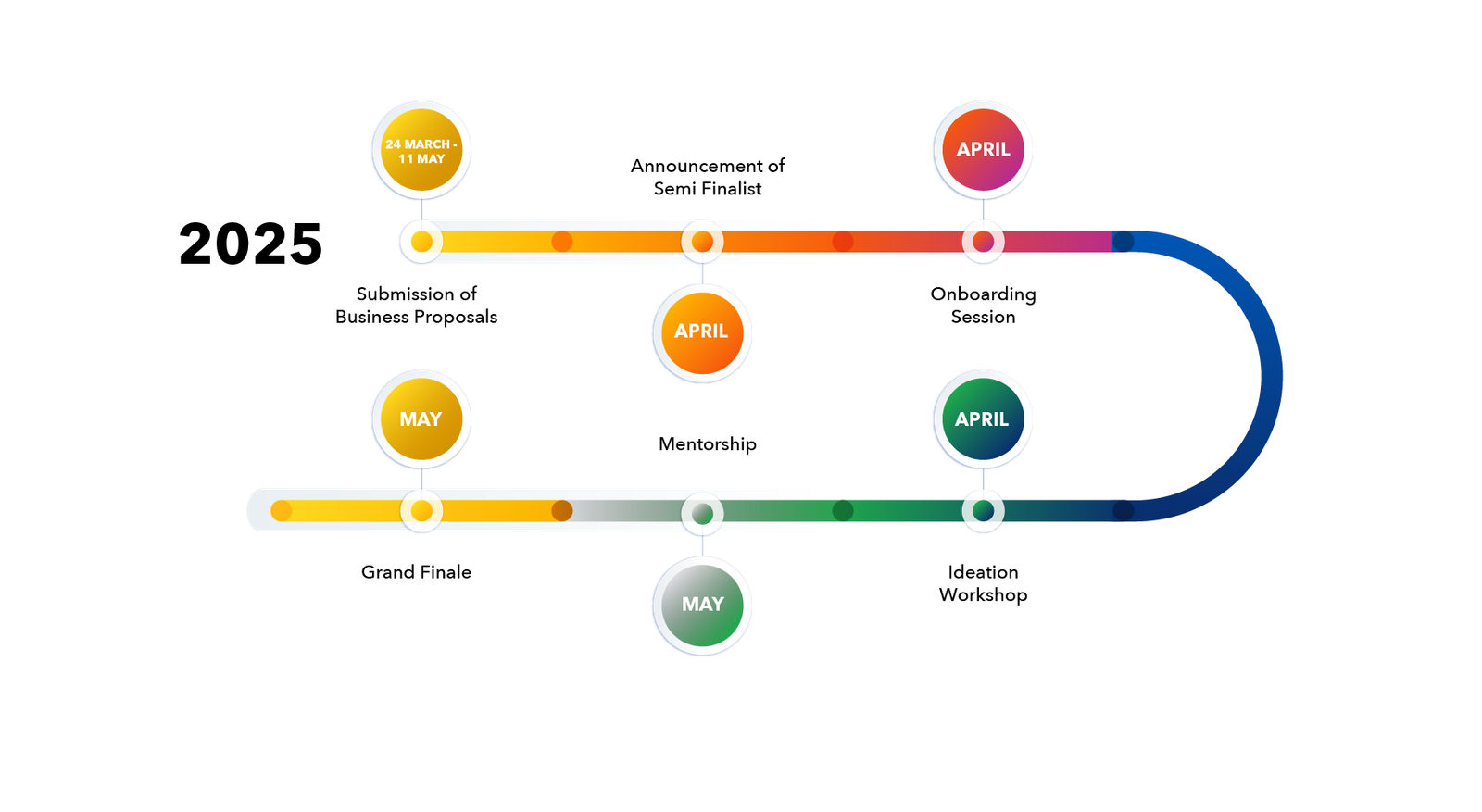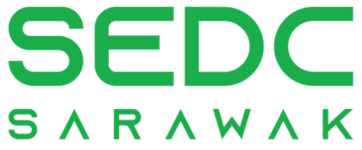
THE VIBES INITIATIVES:
INNOVATION CHALLENGE@UNIMAS
Nurturing Ideas into Real-World Innovations
Join us at the Innovation Challenge, VIBES’ inaugural programme where we call for innovative ideas, projects or researches to be pitched and developed into implementable solutions for community, industry and regional development. Open to all UNIMAS students of all study levels.

ABOUT US
The VIBES Initiatives is established in 2023 through a collaborative Memorandum of Understanding (MoU) between Velesto Energy and Sarawak Economic Development Corporation (SEDC) to promote education in through programmes in the community to create long term impact for Sarawak.
VIBES, an acronym for ‘Velesto-SEDC Initiatives to Boosting Excellence in STEM’ via industry-driven collaboration and innovative programme delivery beyond the concept of classroom aims to:
- bridge education with innovation and real-world applications; and
- promote the development of technical talents and interest in STEM related skills
across all levels up to tertiary education. The collaboration, hosted by Velesto and SEDC will initiate and develop various programmes to be launched in the coming years.
HOST & SPONSOR
Sarawak Economic Development Corporation (SEDC) is a state-owned statutory body with the general aim of promoting the commercial, industrial and socio-economic development of the Sarawak. SEDC was established under the Perbadanan Pembangunan Ekonomi Sarawak Ordinance (Sarawak Cap. 35), a law duly passed by the Sarawak State Assembly in accordance with the powers conferred on and delegated to the State Government of Sarawak under the Constitution of Malaysia.
Find out more about Sarawak Economic Development Corporation (SEDC).
Velesto Energy is a Malaysia-based multinational provider of services for the upstream sector of the oil and gas industry. It is listed on the Main Board of Bursa Malaysia and a constituent of the FTSE4Good, an index designed to highlight companies that demonstrate a leading approach to addressing environmental, social and governance (ESG) risks. The Group owns and operates six premium jackup drilling rigs, which are capable of operating in water depths of up to 400 feet – ideal for the shallow waters of South East Asia. Velesto is also a provider of workover services through its fleet of hydraulic workover units. To ensure continuity and quality in the drilling sector, Velesto plays its part in technical talent development through Velesto Drilling Academy.
Find out more about Velesto Energy
PROGRAMME PARTNER
ANNOUNCEMENT OF SEMI-FINALISTS
The VIBES Innovation Challenge@UNIMAS
| Group Names | Idea Overview |
|---|---|
LETTUBOOST |
Turns water lettuce, a plant that causes problems in waterways, into useful products: food for fish and a natural soil booster for farms. |
STEMCatalyst |
Created a low-cost science kit in a box, ‘STEM-in-a-Box’ for schools in the countryside that do not have labs, making science learning more hands-on and interactive. |
BitByBit |
Proposed a student-exclusive phone app, ‘Re3 App,’ for university students to easily share, swap, and sell their used items to help the environment and reduce waste on campus around Kuching. |
Fusion Formula |
Developing a digital system to connect building design, material calculations, and the process of getting quotes from suppliers, to make construction projects more efficient and less prone to errors. |
PLANiT |
A smart system with a bin and app to track and manage food waste, helping turn it into compost and encouraging people to waste less and get rewards, starting at the university. |
PlasTex |
Created a reusable fabric wrap made from recycled plastic bottles and old clothes, designed to be strong, water-resistant, and beautiful, as an alternative to single-use plastic bags. |
| Group Names | Idea Overview |
|---|---|
AIRED |
To develop a phone app ‘ChilliGuard’ that uses artificial intelligence to help chilli farmers identify pests early by taking pictures of their crops, reducing damage and supporting sustainable farming. |
BE.Digital |
Proposed a system, ‘SmartFuel Malaysia’, that uses cameras to read license plates and link to government databases to automatically apply petrol subsidies based on income, without needing cards or IDs. |
EduSphere |
To develop a study app 'Steps!' that breaks down schoolwork and general projects into small, manageable steps like a game, and includes features to help ADHD students focus faster through engaging content and manage their time better. |
Art Penumbra |
Spectakuler is an AI-powered learning platform that personalises education and lets students earn by tutoring, selling notes, and offering study content. Built for Malaysian universities, it enables students with future-ready skills and digital income opportunities. |
STEM Quest Borneo |
A learning game designed to teach students about science and engineering by exploring the oil and gas industry in Sarawak through fun missions and challenges. |
Sprint Labs |
To develop an eco-friendly and trackable bag ‘BioReclaim Bag’ made from plant waste and natural materials that can break down completely in nature without leaving harmful traces. |
| Group Names | Idea Overview |
|---|---|
LETTUBOOST |
Turns water lettuce, a plant that causes problems in waterways, into useful products: food for fish and a natural soil booster for farms. |
STEMCatalyst |
Created a low-cost science kit in a box, ‘STEM-in-a-Box’ for schools in the countryside that do not have labs, making science learning more hands-on and interactive. |
BitByBit |
Proposed a student-exclusive phone app, ‘Re3 App,’ for university students to easily share, swap, and sell their used items to help the environment and reduce waste on campus around Kuching. |
Fusion Formula |
Developing a digital system to connect building design, material calculations, and the process of getting quotes from suppliers, to make construction projects more efficient and less prone to errors. |
PLANiT |
A smart system with a bin and app to track and manage food waste, helping turn it into compost and encouraging people to waste less and get rewards, starting at the university. |
PlasTex |
Created a reusable fabric wrap made from recycled plastic bottles and old clothes, designed to be strong, water-resistant, and beautiful, as an alternative to single-use plastic bags. |
AIRED |
To develop a phone app ‘ChilliGuard’ that uses artificial intelligence to help chilli farmers identify pests early by taking pictures of their crops, reducing damage and supporting sustainable farming. |
BE.Digital |
Proposed a system, ‘SmartFuel Malaysia’, that uses cameras to read license plates and link to government databases to automatically apply petrol subsidies based on income, without needing cards or IDs. |
EduSphere |
To develop a study app 'Steps!' that breaks down schoolwork and general projects into small, manageable steps like a game, and includes features to help ADHD students focus faster through engaging content and manage their time better. |
Art Penumbra |
Spectakuler is an AI-powered learning platform that personalises education and lets students earn by tutoring, selling notes, and offering study content. Built for Malaysian universities, it enables students with future-ready skills and digital income opportunities. |
STEM Quest Borneo |
A learning game designed to teach students about science and engineering by exploring the oil and gas industry in Sarawak through fun missions and challenges. |
Sprint Labs |
To develop an eco-friendly and trackable bag ‘BioReclaim Bag’ made from plant waste and natural materials that can break down completely in nature without leaving harmful traces. |
PROGRAMME
- An ideation and solutioning programme to provide platform for UNIMAS students of all study level to pitch your innovative ideas, university projects and researches for evaluation of real-world application by industry experts.
- Gain access to mentorship, networking, project recognition and prizes.
- Develop functional solutions addressing real-world challenges.
- Enhance technical, creative, and problem-solving skills.
- Foster collaboration among students from diverse backgrounds.
- Gain insights and connections through mentorship and industry engagement.
- Further refine solutions for research, startups, or industry applications.
Ideate scalable solutions
Platform to showcase and share researches/ ideas to greater audience and industry players
Commercial value to R&D
Platform to showcase and share researches/ ideas to greater audience and industry players
Learning & networking
Opportunities to learn from industry
Awards & prizes
Platform to showcase and share researches/ ideas to greater audience and industry players
KEY STAGES


TIMELINE


The timeline is subject to change at the organiser’s discretion.
All currently enrolled UNIMAS students. We encourage team composition of diverse study levels, academic courses/backgrounds, and faculty.
Students with innovative ideas, existing projects and researches, patent or Proof-of-Concept
The Innovation Challenges focus on identifying ideas and solutions to address challenges around four (4) suggested themes below.
However, participants are also encourage to submit proposal on other areas of innovations/ projects/ researches that contribute to the principles of technological advancement, sustainability and regional development.
Engineering
Ideas or solutions contributing to future ways of working/ facilities of the future as well as solving communities challenges around infrastructures.
Examples:
- Process & Operational Efficiency – robotics/ automations, CCUS, and more
- Smart Maintenance & Inspection – IoTs, Augmented Reality
- Disaster management engineering
- Chemicals and materials – advanced coatings & lubricants, nanotechnology, resource recovery

IT & Digital Innovation
Ideas or solutions develop on digital platform to help improve process, enhanced safety and security, predictive and preventive management as well as communities connectedness.
Examples:
- Asset Intelligence – Applied AI in process, data analytics for performance management, etc.
- Smart warehouse & inventory management
- Smart manufacturing – 3D printing, modular design
- Cybersecurity

Sustainability
Ideas or solutions contributing to mitigating climate and environmental impact, biodiversity protection, and industry and communities resilience to climate adaptation.
Examples:
- Energy transition – future energy/ alternatives fuel, electrification
- Net Zero – GHG reduction technology, energy efficiency
- Nature conservation & biodiversity – bio baselining, efficient coral restoration, etc.
- Circular economy – promoting recycling and material recovery/ repurposing

Education
Ideas or solutions develop to empower the future of learning and provide experiential methodology, as well as addressing technical talent development or future skills gap.
Examples:
- Innovative teaching – E-learning/ interactive platform, gamification technology
- Knowledge capture and accessibility
- Education equality


Engineering
- Augmented Reality – Inspection
- IoT
- Operational Efficiency

Information Technology and Digital Innovation
- Decarbonization / Net Zero / Carbon Credit
- Nature Conservation & Biodiversity
- Green Energy / Alternative Fuel
- Circular Economy

Sustainaility
- Artificial Intelligence
- Cybersecurity
- Data Analytics (Performance Management)

Education
- E-Learning
- Gamification
- Innovative Teaching
CRITERIA & GUIDELINES
Team Composition
- Each team must consist of 3-5 students.
- Teams should be diverse to ensure well-rounded solutions.
- Each team must have one Academic Advisor (lecturer) for mentorship and guidance.
- Each participant can only be part of one team.
Project & Theme Alignment
- Teams must develop innovative programme proposals aligned with one of the programme themes.
Commitment & Participation
- Participants must actively engage in all activities under the programme, mainly Onboarding Session, Ideation Workshop, Mentorship and Grand Finale.
Professional Conduct & Ethics
- Teams must adhere to ethical guidelines, respect intellectual property, and maintain professionalism throughout the competition.
- All submitted work must be original and developed within the programme timeline.
Proposal Format
This proposal format serves as a guide to help teams structure their submissions, but it is not restrictive—teams are encouraged to present their ideas in a way that best reflects their current stage, whether it’s an early-stage idea, research-backed with grants, a patented design, a proof of concept (PoC), or a Minimum Viable Product (MVP).
While key areas below are important to be provided, teams have the flexibility to showcase their ideas in a format that effectively communicates their vision, innovation, and potential impact.
Proposal Overview
- Team Name
- Contact Information (email, phone, website, social media)
Idea Overview
- Description of the idea(s)
- Key benefits and unique value proposition
- Current stage (idea, prototype, MVP, market-ready)
Market Opportunity
- Target audience and customer segments
- Estimated market size with supporting data
- Market trends and growth potential
- Go-to-market strategy (distribution channels, marketing plans, partnerships)
Problem Statement
- Clearly define the problem your startup is solving
- Who faces this problem? (Demographics, industries, user personas)
- How big is the problem? (Market demand, pain points, statistics)
Solution & Differentiation
- How your idea(s) effectively addresses the problem
- Key features and competitive advantages
- Prototype, demo, or proof of concept (if available)
- Comparison with existing solutions and why your approach is better
Business Strategy & Milestones (if applicable)
- Short-term and long-term vision
- Proposal development roadmap
- Business growth plan (expansion, partnerships, scaling strategy)
- Key milestones achieved so far for example funding, traction, product development
Team & Expertise
- Founders and core team members (roles, backgrounds, expertise)
- Advisors, mentors, and investors (if applicable)
- Why this team is the right one to execute the vision
Validation & Market Traction (if applicable)
- Customer feedback, testimonials, and case studies – can be research findings
- Partnerships, collaborations, and pilot projects
- Awards, media coverage, or industry recognition
Financials & Revenue Model (if applicable)
- Revenue streams and pricing strategy
- Sales/revenue projections (charts, tables)
- Investment needed and allocation of funds
- Potential return on investment (ROI) for stakeholders
Risk Management & Sustainability
- Key risks (market, operational, financial, technological, legal)
- Risk mitigation strategies
- Sustainability strategy (economic, social, environmental impact)
Optional: Business Model Canvas (BMC)
- A summarized one-page visual representation of your business model
FAQ’s
1. Who is eligible to participate in this competition?
The competition is open to teams of 3-5 students. Each team must have one Academic Advisor (lecturer) for mentorship. Participants must be committed to attending all key sessions, and each person can only join one team. Any pre-existing startups, patents, or grants related to the proposal must be declared.
2. Can I be part of multiple teams?
No, each participant can only be part of one team throughout the competition. This ensures fairness and that each team gets equal dedication from its members.
3. Does our startup need to be an existing business, or can it be a new idea?
Teams can submit either new ideas or existing startups. However, proposals must align with one of the competition themes, and pre-existing startups, patents, or grants must be declared.
4. Can we edit or resubmit our proposal after submission?
No, once submitted, proposals cannot be edited. Teams should ensure their business proposal PDF is final before submission.
5. What happens if a team member drops out after submission?
If a team member drops out, the team must still have at least three members. If the team falls below this number, a replacement must be found before the onboarding session. No new members can be added after the onboarding session. Teams should ensure all members are committed from the start to avoid disruptions.

THE VIBES INITIATIVE:
INNOVATION CHALLENGE@UNIMAS
Join the challenge now and validate your ideas for real-world applications. Gain access to industry insights and needs, and explore opportunities to solutions scalability.
Don’t wait – apply by 11 May 2025
CONTACT US
Feel free to contact us any time. We will get back to you as soon as we can!





